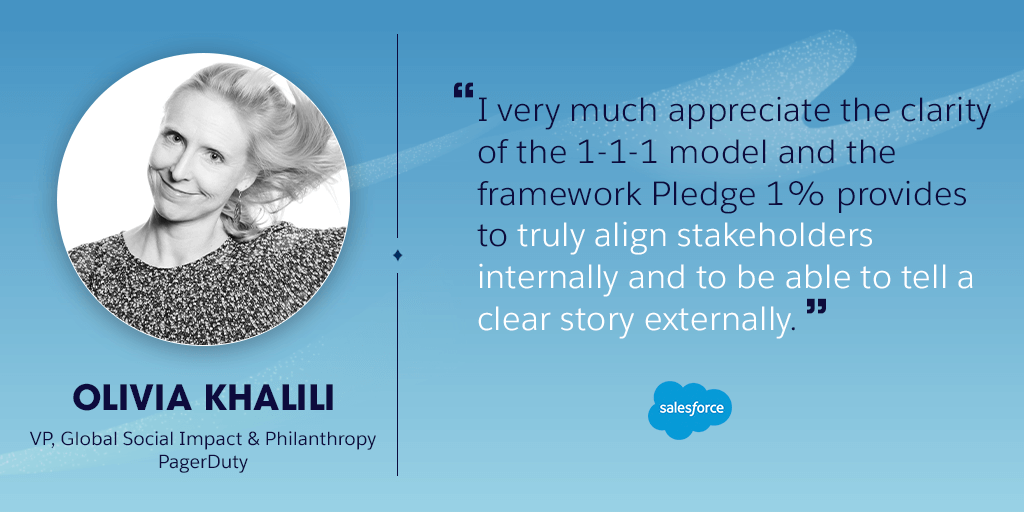Throughout history, people have looked to the skies to find deeper meaning and purpose in their lives. A lot of us are staring up right now, especially when we’ve been given a collective pause to our typical lives. That has enabled us collectively to wonder how we begin again anew once this all passes… which, yes, is going to take some time. It’s like a midlife crisis for the whole world to revaluate and reassess what’s important. Can we do well by doing good?
Sure, our lives have become smaller, but many have rediscovered the simple pleasures of family, community and purpose.
That’s what today’s perspective is all about as shared by Mark Rubinstein, CEO of Hope Air. This organization helps Canadians in need with free air flights and accommodations to access specialized medical care. Mark believes in the power of purpose as a powerful force to create positive social change.
A Personal & Professional Awakening
Mark’s career has spanned the last 35 years, with 20 plus years in the private sector corporate world. The driving dynamic when you work there is that profits and maximizing shareholder value is the driving dynamic.
What caught Mark’s eye in early 2012 was the emergence of a new breed of companies. Ones that were not only trying to maximize shareholder value, but actually expressing the role that they felt their company could play. They began to understand that they could make a positive difference in their community. Indeed, that some companies were outperforming their competitors as a result of their purpose-driven culture. There was a realization that to attract and keep exceptional talent, organizations need to stand for something more than just making money.
For an increasing part of the workforce, there is a driving belief that there’s got to be more to the work. That they are doing something beyond just getting a paycheque. True fulfilment comes from contributing to a real purpose.
That led to a question that Mark explored professionally and personally: “how can we do well by doing good?”
Influencing Where to Work & What to Buy
The most successful companies achieve their status because of the talent they’re able to attract to actually work at and run those companies. Yet employee engagement remains a major productivity and financial issue for so many organizations.
Today in Canada, employee retention, especially amongst millennial and Gen Z employees, has been a difficult problem. Of course that’s not just a morale issue, it’s not just a productivity issue. It’s a financial issue because every time someone leaves, you have to go out and recruit someone else. You have to retrain, and that all affects the bottom line.
Purpose not only ignites inspired work cultures, it is also an increasingly important element in fighting for your share of customers.
Increasingly, customers vote with their wallet. Consumers can choose companies that deliver products or services that align to their values. They can spend carefully to make change in the world.
Governments Are Tapped Out
There are only three sectors that can ultimately fund the profound improvement needed for society at large, including important social and environment issues.
There’s government, there’s the not for profit sector and then there’s the corporate sector. Government is already stretched and unless taxes are going to go up, there’s no more money to fix things. They’re doing the best they can and it doesn’t matter which which party is in power. Government priorities may change but the ultimate funding available does not.
For the charitable sector, the resources they have are relatively speaking, minuscule compared to both government and private sector. Accordingly, while their impact is meaningful, their ability to affect increasing change is limited.
So that then leaves the private sector. At the end of the day, to solve big problems, you need big ideas backed by big resources. The greatest opportunity in this regard lies with the corporate sector to increase and more effectively deploy funding and other resources. By doing so, we bring positive change to the world. Plus, they can align with a company’s desire to continue to meet shareholder, partner and employee objectives. That’s where it can be the real win-win.
Corporate Citizens Stepping Up
The core issues really haven’t changed over time.
The difference in the last few years is that pressure has increased to try and address important issues, and to contribute to try to make a difference.
Many of the social and and racial injustice and inequality issues that have been at the forefront as part of Black Lives Matter have been simmering for decades. Think about what Nike did in 2018 as they endorsed Colin Kaepernick to demonstrate that he (and therefore Nike) believe in acting on racial injustice. That they’ll continue on pushing for change even if it means “sacrificing everything.” No matter what you may think about Nike, they made a decision that they were going to take a stand, even if it meant that some people were going to burn their sneakers. In fact, Nike’s revenues and share price increased significantly following their decision.
3 Companies Doing Well by Doing Good

Salesforce adopted a 1-1-1 model: 1% of their equity, 1% of their products and 1% of their employees time is dedicated to supporting social and environmental issues. That’s a really very clear and defined way of demonstrating their commitment to social purpose. They are making a difference and doing well by doing good.

Patagonia, a staunch defender of environmental rights, sued the U.S. government. Patagonia sued as a result of the government’s decision to reduce the size of protected wilderness in Utah by millions of acres. What they were saying to the world is that Patagonia is a brand that takes action on the issues that matter. This spoke directly to their employees, their customers and to their partners. For Patagonia, that is part of the definition of “corporate leadership.”

The recent CEO of Unilever is Paul Polman. Paul came to the realization early in his tenure that brands that stand for trying to make a clear and impactful difference in the lives of citizens are going to thrive. The opposite is that the ones that don’t are going to diminish. You can see the success of their purpose driven ethos in both stock price and in consumer loyalty, even as some consumers are tempted to trade down to store brands during COVID.
It’s Time to Lead… Together
Being purpose driven is not for the faint of heart. You have to be willing to take a stand, recognizing that not every stakeholder may necessarily support you. You have to be prepared to take a certain amount of heat, but recognize that in the long term, not only is it the right thing to do but you’re actually doing what’s in the self interest of your corporate objectives, which includes growing your company. It’s about growing your revenue and profits, attracting and retaining great employees and developing great partnerships. By taking on these challenges, you’re actually going to be doing better than your than your competitors and that’s how you can reach for the skies.
In Partnership With
Mark Rubinstein is a life-long leader who specializes in purpose-driven initiatives that support others. In his current role as Chief Executive Officer at Hope Air, his team helps Canadians in need with free air flights and accommodations to access specialized medical care. In addition, Mark is Founder of the Art Of Purpose, a consultancy collective, focused on helping leaders and entrepreneurs scale and flourish by innovating around Purpose and People to drive business success.
Tim Bishop, CM is a multi-disciplined executive with a proven record of optimizing strategic efforts to expand the influence of leading organizations, such as the Canadian Marketing Association, Cineplex Entertainment, Lavalife.com, IMI International and Northstar Research Partners. In Partnership With is his latest focus to curate Canadian marketing experts to celebrate the power of strategic partnerships in a perspective-based content series.

